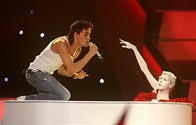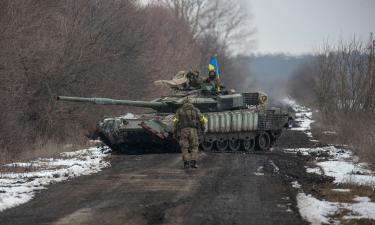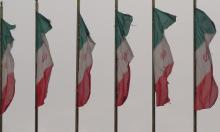Europop showdown: acts from 24 countries battle for glory in Eurovision Song Contest
There's an Olympic stadium, highly toned participants, intense rivalry and flag-waving fans from many nations.

It's not the Olympics it's the Eurovision Song Contest, an annual extravaganza of kitsch and color that sees pop acts from 24 countries face off before tens of millions of television viewers.
"You don't imagine something so bad could be so good," said Carmela Pellegrino, an Australian who traveled from London to watch the final dress rehearsal ahead of Saturday's final.
Regarded by many as the contest that good taste forgot, Eurovision is adored by fans of camp, kitsch and bubble-gum pop around the world.
Since 1956, it has pitted European nations against one another in pursuit of pop music glory. Previous winners include '60s chanteuse Lulu, Sweden's ABBA victors in 1974 with "Waterloo" and Canada's Celine Dion, who won for Switzerland in 1988.
Saturday's final was being broadcast live in 38 countries to an audience estimated at 100 million. In Britain, fans traditionally celebrate at Eurovision parties, cheering and jeering the hopefuls as they watch the British Broadcasting Corp.'s live coverage.
Broadcaster NBC announced plans earlier this year to replicate the formula a forerunner of "American Idol"-style talent contests in the United States, with acts from different U.S. states competing for viewers' approval.
The European Broadcasting Union, which runs Eurovision, said it was in talks with NBC over rights. If successful, the American version could go ahead as early as this fall, said the group's director of television, Bjorn Erichsen.
Athens is hosting the event because Greece won last year in Kiev, Ukraine. Some 13,000 fans packed the indoor arena used during the 2004 Olympic Games, from Gothic supporters of Finnish metal band Lordi to cowboy-hatted Germans supporting their contender, Texas Lightning.
Jude Habib, a communications consultant from London, was attending her fourth Eurovision with friend Mandy Norman.
"Our friends think we're mad," she said. "But for one week a year, we can be completely silly."
Some 3,000 police officers were on duty for the event, which was being held under tight security.
The show opened in true Eurovision style, with a garish musical number inspired, organizers said, by Greece's rich history, mythology and sparkling seas. The hosts, Greek pop singer Sakis Rouvas and American "Access Hollywood" correspondent Maria Menounous, were flown in from the wings onto a set inspired by an ancient theater.
All the contenders were hoping to take home the Eurovision trophy, fashioned in the shape of an ancient Greek column.
Some of the acts, like Switzerland's Six4One, stuck to the classic Eurovision formula of catchy tunes and blandly uplifting lyrics, telling listeners that "If we all give a little, we can make this world a home for everyone." Ireland's Brian Kennedy was offering a syrupy ballad entitled "Every song is a cry for love," while Bosnia's Hari Mata Hari said it hoped to bring people together with the love song "Lejla."
Others are more daring, or eccentric. Latvia's Cosmos perform a cappella on "I Hear Your Heart," while Germany's Texas Lighting is a country band, complete with banjo. "We are the Winners," by Lithuania's LT United, consists largely of the optimistic lyrics "We are the winners of Eurovision."
Britain's Daz Sampson is a blue-collar rapper from Stockport in northern England who is backed by a troupe of dancers dressed as schoolgirls on "Teenage Life," a hip-hop tribute to his schooldays.
"It's going to be incredibly difficult," Sampson said of his bid to be Britain's first winner since 1997. "You've got three minutes and you have to stand out."
Eurovision victory is no guarantee of fame. Dion and ABBA went on to glory as did Olivia Newton John, who lost to ABBA while competing for Britain in 1974. Other winners have sunk without trace, victims of the "curse of Eurovision."
Many of this year's competitors are big stars in their home region but little known elsewhere. Swedish diva Carola a previous winner, in 1991 has sold millions of records, while Lithuania's Andrius Mamontovas has performed for crowds of 60,000 in his homeland.
Others are notorious. Lordi, a cartoonish Finnish metal band with monster masks and apocalyptic lyrics, scandalized some of their compatriots when their song "Hard Rock Hallelujah" was chosen to represent the Nordic nation.
At a post-semifinal press conference, frontman Mr. Lordi said his plan for the final was to "scream louder. And turn the amps up," reports AP.
O.Ch.
Subscribe to Pravda.Ru Telegram channel, Facebook, RSS!





